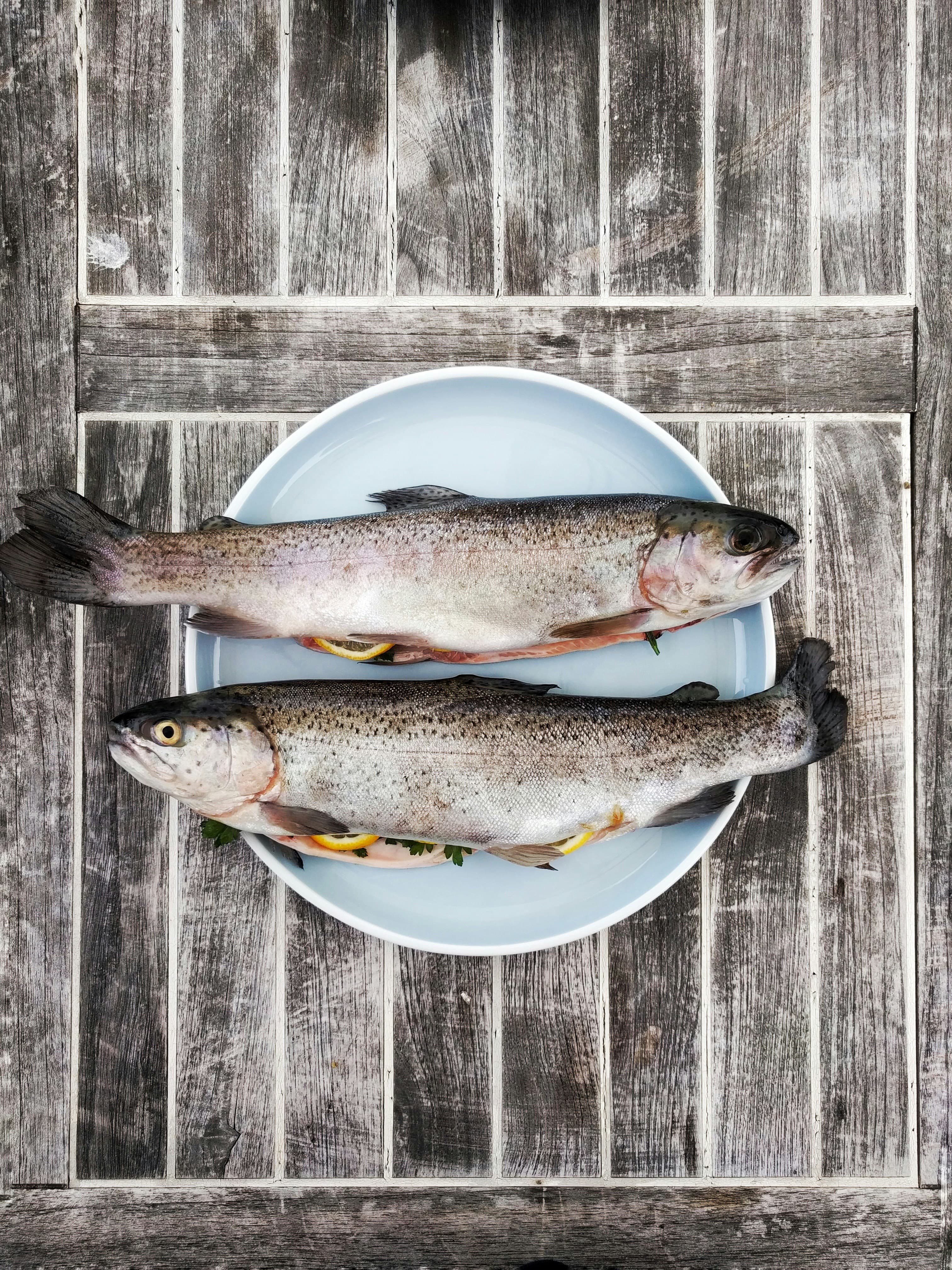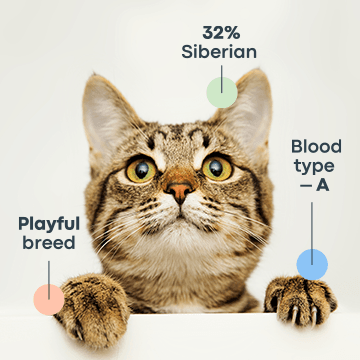Do cats like to eat fish? They love fish! Fish, a rich source of omega-3 fatty acids, vitamins, and minerals, can play a crucial role in our pets’ diets. This guide expands on the importance of fish in a cat's diet, how to choose and prepare it safely, and the best commercial options available, ensuring a balanced and nutritious diet for our furry friends.
Understanding the Benefits of Fish for Cats
Incorporating fish into your cat's diet can significantly enhance their health and well-being. Fish is a rich source of omega-3 fatty acids, particularly EPA and DHA, which play vital roles in brain health, reducing inflammation, and maintaining a shiny coat. These nutrients are not only essential for adult cats but are critical during the developmental stages of kittens for neurological development and vision improvement. Studies have shown that cats consuming diets rich in omega-3 fatty acids from fish oil have better cognitive function and overall health compared to those on omega-3 deficient diets.
However, it's crucial to balance the benefits with potential risks. While fish provides valuable nutrients, excessive consumption can lead to imbalances, especially in vitamins and minerals. For instance, too much fish in a cat's diet can result in a deficiency of vitamin E, leading to painful conditions like steatitis, also known as yellow fat disease. Therefore, while fish can be an excellent addition to a cat's diet, it should be given in moderation and as part of a balanced diet to avoid nutrient excesses or deficiencies.
The Best Fish for Cats
Selecting the right type of fish is paramount for your cat's health. Oily fish such as salmon, mackerel, and sardines are recommended due to their high levels of beneficial omega-3 fatty acids. These fish help support heart health, reduce inflammation, and improve coat quality. When choosing fish for your cat, it's important to consider the source to avoid exposure to high levels of mercury and other contaminants that can be harmful over time.
Can Cats Eat Raw Fish?
Feeding cats raw fish is generally not recommended due to the risk of bacterial contamination and parasites that could harm your cat's health. Raw fish can also lead to a thiamine deficiency, a vital nutrient for cats. Can cats eat cooked fish? Yes, cooking fish properly before serving is a safer approach to avoid these health risks and ensure the fish is beneficial for your cat.
Oily Fish
Oily fish, like salmon and sardines, are packed with beneficial omega-3 fatty acids that support a cat's coat health, reduce inflammation, and aid cognitive function. However, when feeding cats oily fish, it's crucial to cook the fish to reduce the risk of mercury exposure and eliminate any harmful pathogens that raw fish might carry.
Line Fish
Line fish, such as cod and halibut, offer a leaner protein source for cats and can be a part of a healthy diet when cooked properly. They are generally lower in fat than oily fish and contain fewer omega-3 fatty acids but are still a good source of protein. As with oily fish, serving line fish cooked rather than raw ensures the food is safe for your cat to consume, avoiding the risk of bacterial infections.
Fish to Avoid
High Mercury Fish: Larger fish like tuna, swordfish, and shark accumulate higher levels of mercury, which can be toxic to cats if consumed in large quantities or over a prolonged period. Mercury poisoning can lead to serious health issues, including neurological problems.
Raw Fish: As previously mentioned, raw fish can contain harmful bacteria and parasites. It also contains an enzyme that destroys thiamine, an essential B vitamin for cats, leading to potential deficiencies.
Smoked, Salted, or Seasoned Fish: These types of fish often contain spices, salt, and other ingredients that are not suitable for cats and can lead to gastrointestinal upset or more serious health issues.
Fish with Bones: Small bones can pose a choking hazard or cause internal blockages or injuries. Always ensure that fish is thoroughly deboned before offering it to your cat.
Other Fishy Treats for Kitties
For cats who enjoy a bit of variety in their diet, there are several "fishy treats" that can safely be given in moderation. These include:
Cooked shrimp and prawns: High in protein and omega-3 fatty acids, these can be a delicious treat for cats when cooked and cleaned properly, without any added salt or seasonings.
Boiled or grilled scallops: These can be offered as a special treat, ensuring they are cooked without any harmful additives.
Flaked cooked fish: Small amounts of cooked, boneless fish such as salmon or cod can be mixed with their regular food for an added treat.
Always remember to introduce any new treats into your cat's diet gradually and in small quantities to avoid digestive upset, and ensure that treats do not make up more than 10% of their total diet to maintain nutritional balance.
Safe Fish Preparation and Feeding Practices
Preparing fish safely for your cat is key to maximizing its health benefits while minimizing risks. Cooking fish thoroughly is essential to kill any potentially harmful pathogens and to make the fish easier for cats to digest. It's also important to remove all bones to prevent choking or internal injury. For those interested in making homemade fish meals for their cats, incorporating vegetables like pumpkin can add fiber and vitamins, creating a well-rounded meal that supports digestive health.
Yet, it's vital to remember that while homemade diets can be nutritious, they must be carefully balanced to meet all of a cat's nutritional needs. Consulting with a veterinarian or a veterinary nutritionist before introducing homemade meals is crucial. They can provide guidance on proper portion sizes, nutritional balance, and supplement needs to ensure the homemade diet supports your cat's health without unintentionally causing nutritional deficiencies or imbalances.
Commercial Fish Cat Foods
For cat owners looking for convenient options, commercial fish-based cat foods can be a great choice. High-quality brands often feature fish as a primary ingredient, offering the benefits of omega-3 fatty acids along with a balanced profile of other essential nutrients. When selecting commercial cat food, it's essential to read the ingredients list and nutritional information to ensure the product is high in animal-based proteins and does not contain excessive fillers or additives.
Moreover, the variety available in commercial fish cat foods allows owners to choose products that meet their cat's specific dietary needs, such as grain-free, limited ingredient, or life-stage-specific formulas. Some brands also prioritize sustainability and ethical sourcing, which can be an important consideration for environmentally conscious pet owners. As with any dietary change, introducing new commercial cat food should be done gradually to avoid digestive upset and to allow your cat to adjust to the new flavors and textures.
Feeding Fish Responsibly
While fish can offer numerous health benefits to cats, it's important to be aware of the potential health considerations and dietary cautions. Mercury accumulation in larger fish species can pose a risk of mercury poisoning, particularly with frequent consumption. Additionally, fish alone does not provide all the nutrients cats need for a balanced diet, and relying too heavily on fish can lead to nutritional imbalances or deficiencies in other essential nutrients.
Monitoring Your Cat's Health
Balancing fish with other protein sources and ensuring your cat's diet meets all their nutritional requirements is crucial. It's also important to be cautious of fish prepared for human consumption, as it may contain seasonings, oils, or other ingredients that are harmful to cats. Always consult with a veterinarian to ensure any dietary changes, including the introduction of fish, are appropriate and beneficial for your cat's specific health needs and lifestyle.
By considering these aspects and consulting with veterinary professionals, cat owners can safely incorporate fish into their pets' diets, providing them with nutritional benefits while avoiding potential risks.
Frequently Asked Questions
What fish can cats eat?
Oily fish like salmon and sardines are good for cats due to their high omega-3 fatty acid content.
Can cats have fish?
Yes, cats can have fish, but it should be cooked to avoid the risk of disease and ensure it's free from bones.
Can kittens eat boiled fish?
Yes, kittens can eat boiled fish as part of a balanced diet, provided it is fully cooked and free from bones.





